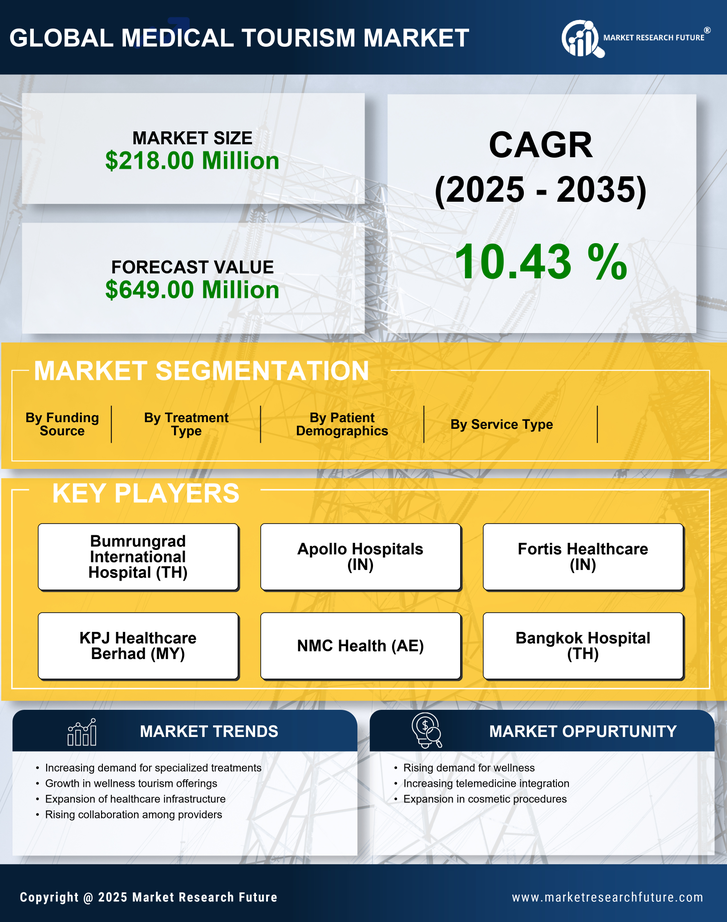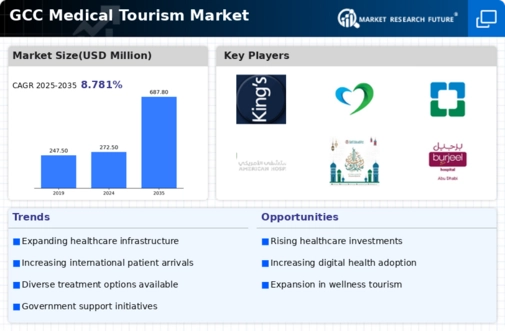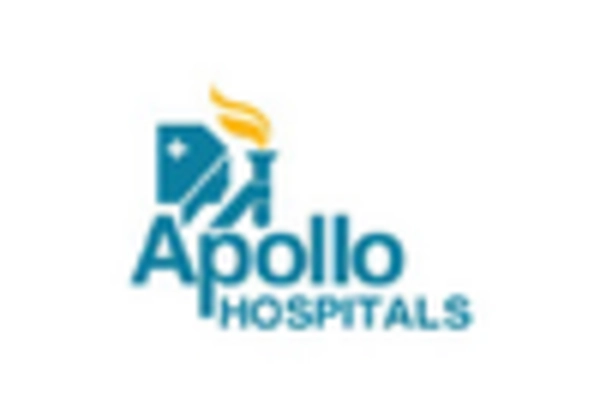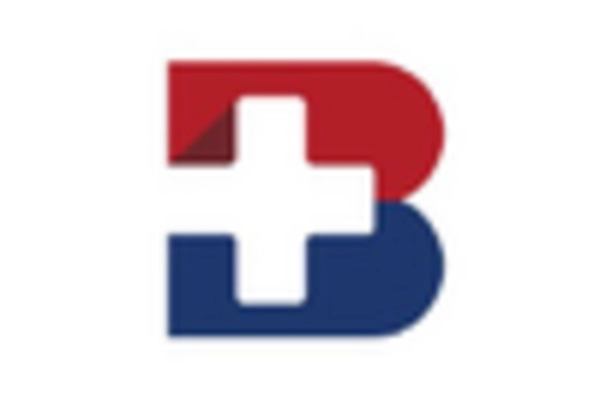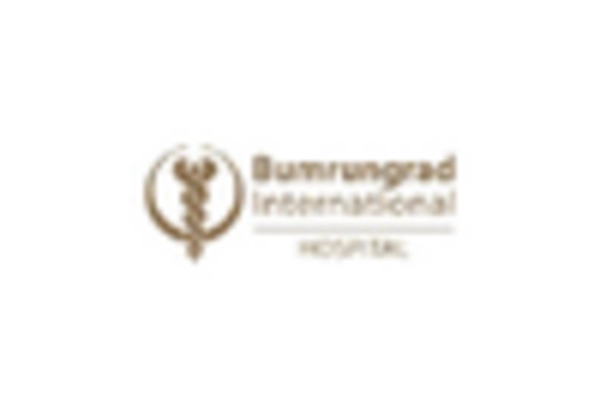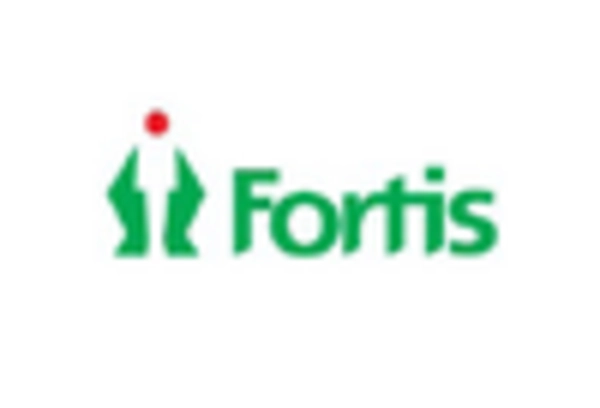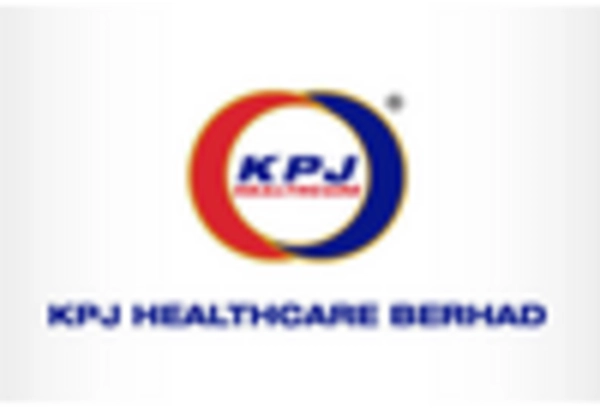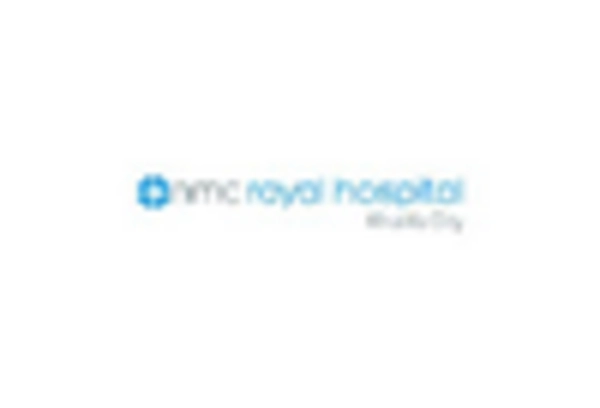Cultural and Linguistic Affinity
Cultural and linguistic similarities between GCC countries and neighboring regions are fostering a conducive environment for the medical tourism market. Many patients from the Middle East and North Africa (MENA) region find it easier to navigate healthcare systems in GCC countries due to shared cultural values and language. This familiarity reduces the barriers to seeking medical care abroad, making GCC nations attractive destinations for medical tourism. The medical tourism market is likely to see increased patient inflow from these regions, as the comfort of cultural alignment encourages individuals to pursue treatment options in GCC countries.
Government Initiatives and Support
Government initiatives aimed at promoting the medical tourism market are playing a vital role in its growth. GCC governments are implementing policies to enhance healthcare infrastructure and streamline the medical tourism process. For instance, initiatives such as visa facilitation for medical tourists and partnerships with international healthcare organizations are being established. These efforts are designed to create a more welcoming environment for foreign patients. As a result, the medical tourism market is expected to flourish, with projections indicating a potential increase in patient arrivals by 20% annually over the next five years. Such government support is crucial for positioning GCC countries as premier destinations for medical tourism.
Technological Advancements in Healthcare
Technological innovations in healthcare are significantly enhancing the appeal of the medical tourism market. GCC countries are increasingly adopting advanced medical technologies, such as robotic surgery and telemedicine, which improve patient outcomes and streamline processes. For example, the introduction of minimally invasive surgical techniques has reduced recovery times and hospital stays, making procedures more attractive to international patients. The medical tourism market is likely to benefit from these advancements, as patients seek cutting-edge treatments that may not be available in their home countries. As a result, GCC nations are positioning themselves as leaders in medical technology, further driving the growth of the medical tourism market.
Increased Awareness and Marketing Efforts
The rise in awareness regarding medical tourism options is a crucial driver for the medical tourism market. GCC countries are actively promoting their healthcare services through targeted marketing campaigns, showcasing their state-of-the-art facilities and highly qualified medical professionals. This increased visibility is attracting a growing number of international patients. According to recent data, the medical tourism market in the GCC is expected to reach $10 billion by 2027, indicating a robust growth trajectory. The strategic marketing efforts by healthcare providers in the region are likely to play a pivotal role in this expansion, as they highlight the benefits of seeking treatment in GCC countries.
Rising Healthcare Costs in Developed Countries
The escalating costs of healthcare in developed nations are driving patients to seek more affordable options abroad. In the context of the medical tourism market, GCC countries offer competitive pricing for various medical procedures, often at a fraction of the cost found in Western countries. For instance, a cardiac bypass surgery in the US can exceed $100,000, while the same procedure in a GCC nation may cost around $30,000. This price disparity is compelling many individuals to consider medical tourism as a viable alternative. Furthermore, the medical tourism market in the GCC is projected to grow as more patients become aware of the quality and affordability of healthcare services available in the region.
